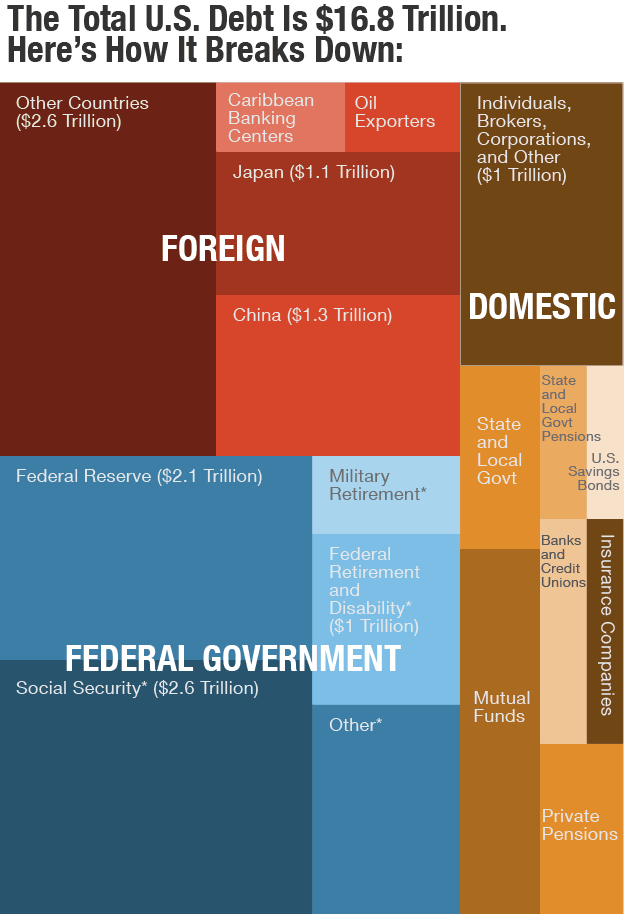
Solution to the 'Shutdown': The Fed Could Simply Cancel $2 Trillion of Government Debt
Washington's Blog
(SCROLL DOWN)
*
*
*
*
*
*
*
*
*
*
 Source: NPR
Source: NPR
Congressman Grayson continues:
Yet canceling this debt would give the government substantial room under the debt ceiling to manage its finances. It would end the debt ceiling standoff in Congress, and it would prevent a default.
The debt held on the balance sheet of the Federal Reserve can be canceled without any significant consequence, because it is a bookkeeping artifact corresponding to the money supply. In essence, the government owes this money to itself. If I owe money to myself, I can cancel that debt at will and without consequence, essentially taking it out of my left pocket and putting it in my right pocket.
Last year, the Federal Reserve declared a “profit” of roughly $91 billion, much of which came from interest payments from the U.S. Treasury. The Federal Reserve then quickly remitted nearly all of this profit right back to the U.S. Treasury.
The Federal Reserve does this every year. Reducing or eliminating this unearned “profit” actually will provide a more realistic view of federal finances.
Grayson gives credit to Paul for coming up with the idea:
I am a Democrat, and known as a progressive. But this idea was put forward a few years ago not by me, or by a member of my party, but by Republican Representative Ron Paul.
He thinks, as do I, that the Federal Reserve‘s dramatic expansion of its balance sheet is simply a way of financing the government by printing money. The Fed isn’t really “buying” Treasury bonds, it is just letting the government finance its deficit by adding to the money supply.
***
While canceling the Treasury debt held on the Federal Reserve balance sheet might be considered unorthodox, it is no more unorthodox than the quantitative easing that has added much of this debt to the Fed’s balance sheet.
Indeed, quantitative easing – the radical program the Fed has engaged in for years, which doesn’t help the economy, benefits the the super-elite and hurts the little guy, and more than offsets any savings from budget cuts in other areas – is largely performed through buying U.S. debt ... $45 billion each month.
Grayson concludes:
In any event, preventing a financial meltdown, with its attendant risks of interest rate and price spikes as well as staggering employment losses, is certainly central to the Federal Reserve‘s mandate of ensuring price stability, maximum employment and moderate, long-term interest rates.
Bernanke could alleviate the debt ceiling crisis simply by canceling the debt held on the Fed’s balance sheet.
